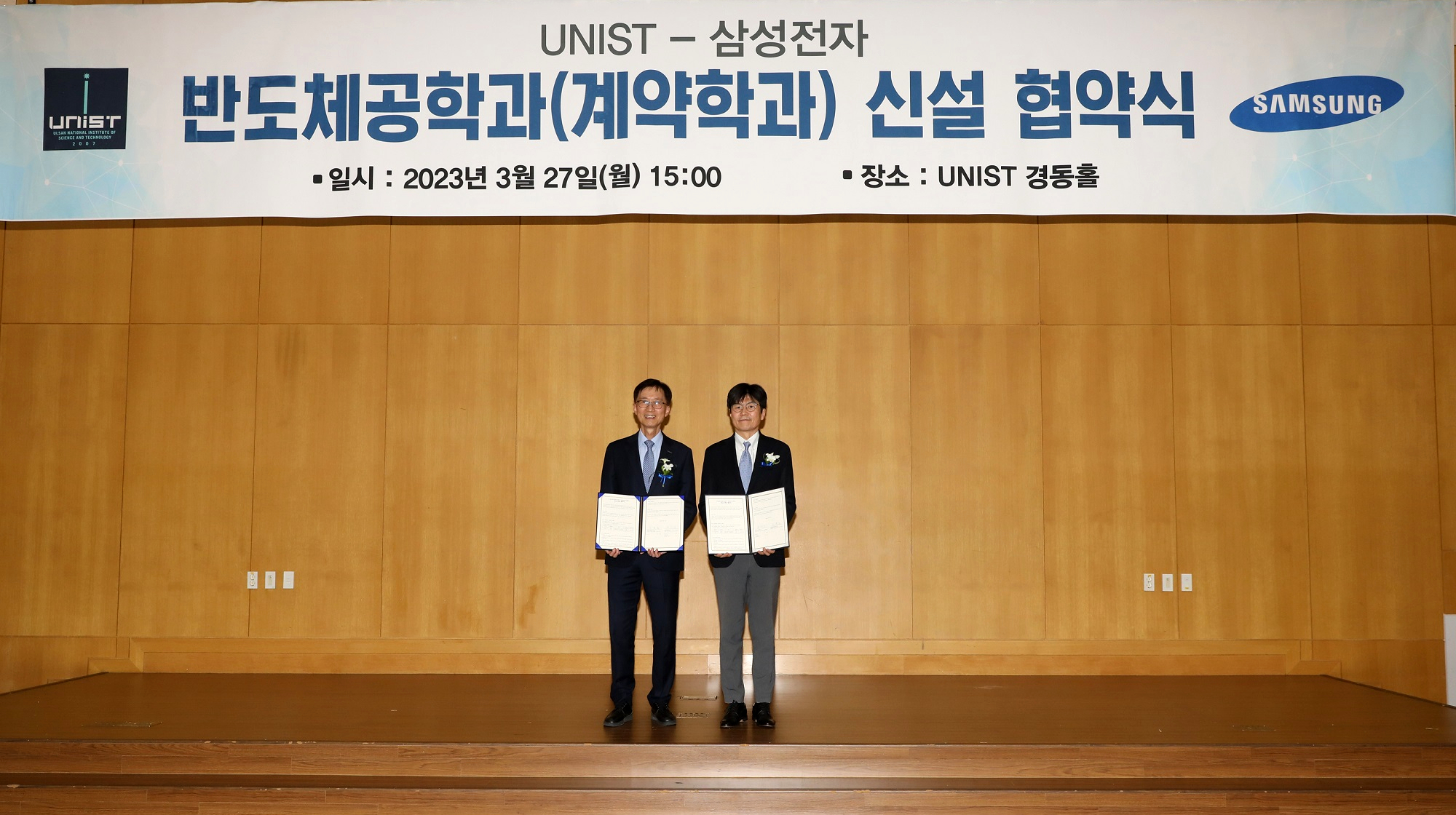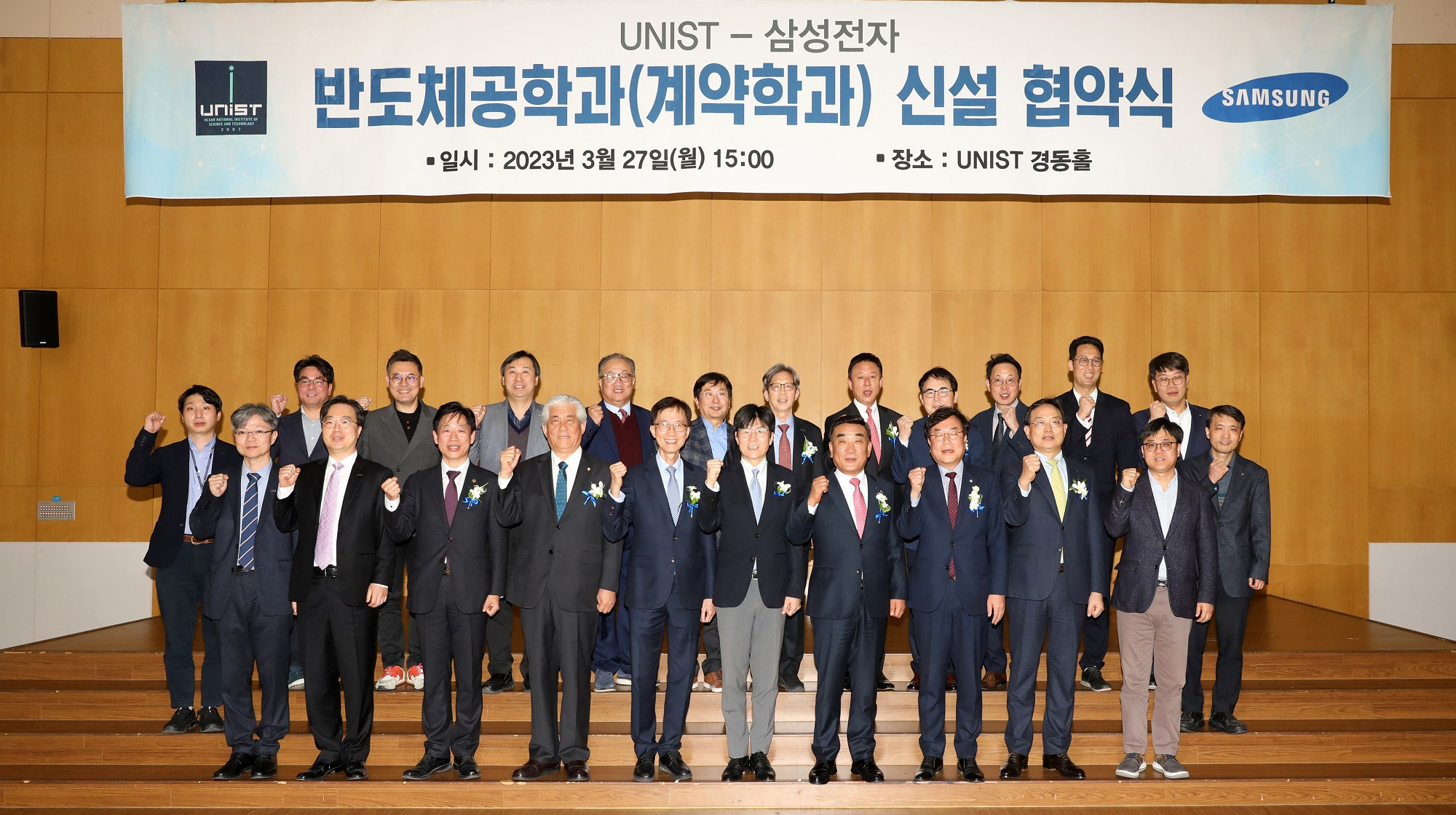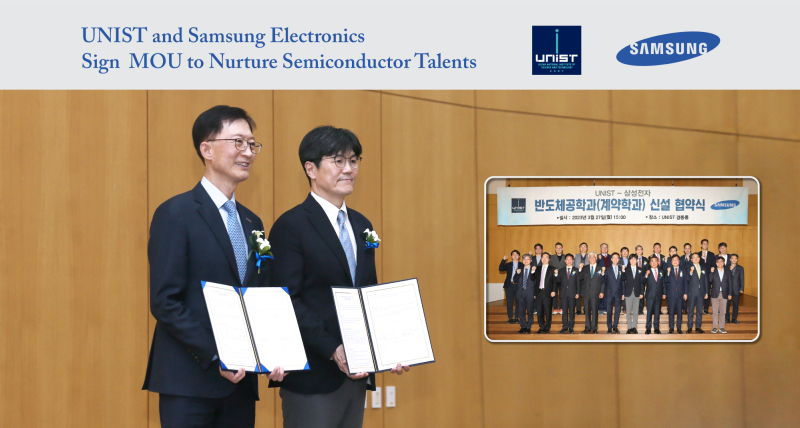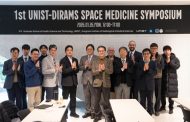UNIST, along with GIST and DGIST, is launching a new department in cooperation with Samsung Electronics Co., Ltd. to foster talented semiconductor engineers and experts.
On March 27, UNIST has embarked on a strategic partnership to set up a 5-year semiconductor engineering program that integrates bachelor’s and master’s degree courses, in partnership with Samsung Electronics Co., Ltd. The new program, funded by South Korea’s biggest memory chip maker, has been designed to educate future talents under the condition that all students will be hired by the company as soon as they graduate.
The signing ceremony of the Memorandum of Understanding (MoU) between UNIST and Samsung Electronics Co., Ltd. has been attended by UNIST President Yong Hoon Lee, President Seok-Woo Nam at Samsung Electronics Co., Ltd., First Vice Minister Tae-Seog Oh of the Ministry of Science and ICT (MSIT), Mayor Doo-Gyum Kim of Ulsan Metropolitan City, National Assembly Member Bum Soo Suh, National Assembly Member Sang Heon Lee, and other key officials from related fields.

The MoU signing ceremony between UNIST and Samsung Electronics Co., Ltd. took place on March 27, 2023. From left are UNIST President Yong Hoon Lee and President Seok-Woo Nam at Samsung Electronics.
With growing demand for chip talents, universities in Korea are actively launching chip-related courses across the country. In particular, semiconductors are not only Korea’s core industry now, but also future high-tech industries that will lead future growth engines, such as AI, autonomous driving, and robots. Furthermore, in global hegemony over semiconductor sector, Korea’s weapon is to nurture manpower. For this reason, Minister Jong-ho Lee of Science and ICT of Korea also expressed the importance of “preparation for a pan-government-level semiconductor talent training system,” last year.
Accordingly, the three major science and technology institutes, including UNIST, have agreed to work with Samsung Electronics to set up a 5-year semiconductor engineering program that integrates bachelor’s and master’s degree courses. This program, which is set to begin in March 2024, will be Korea’s first integrated undergraduate and graduate courses to train skilled semiconductor engineers. The three universities are expected to produce a combined 100 skilled chip engineers annually – 40 from UNIST and 30 from GIST and DGIST, respectively. Their curriculum consists of basic semiconductor systems, basic and in-depth courses, field experience, and on the job training.

A group photo, taken after the signing ceremony of MoU between UNIST and Samsung Electronics Co., Ltd.
In this regards, UNIST will have 40 students each year from 2024 to 2028. These students will all be granted scholarships from Samsung Electronics Co., Ltd. Students will not only receive a full scholarship, jobs are also guaranteed at Samsung upon graduation.
With the addition of the programs at major three S&T institutes, Samsung Electronics Co., Ltd. now runs such courses at seven universities, including Sungkyunkwan University (2006), Yonsei University (2021), KAIST (2022), and POSTECH (2023).












